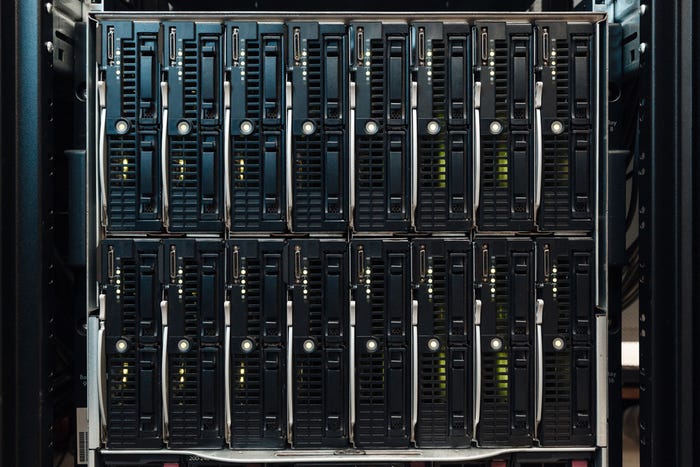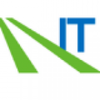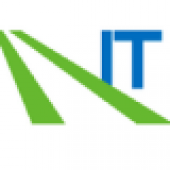Blade Servers: IT Pros Review Top VendorsBlade Servers: IT Pros Review Top Vendors
Users cite pros and cons of HPE BladeSystem, Cisco UCS B-series, and Lenovo Flex System
December 7, 2017

In many enterprise organizations, blade servers reduce an enterprise’s footprint by saving space and reducing overall power consumption. IT professionals consider a number of factors when selecting a blade server for their enterprise, including a variety of hardware integrations, easy management, and minimal energy usage.
According to product reviews by IT Central Station users, top blade server vendors in the market include HPE BladeSystem, Cisco UCS B-Series Blade Servers, and Lenovo Flex System Blade Servers.
Here is what our users have to say about working with these products, describing which features they find most valuable and offering insight on where they see room for improvement.
HPE BladeSystem
A senior network administrator at a government agency said he finds HPE BladeSystems’ remote management capabilities as one of its most valuable features:
“Having implemented this solution, it has enabled us to have remote management of equipment problems, to identify the power for reviewing the status of errors without having to be on-site, but remotely from anywhere required. It allows immediate access to the server management and immediate detection of the access logs.”
An enterprise architect at a financial services firm lauds the virtualization capabilities of the product:
“The virtual connect side of networking and the manageability through that is by far the biggest win for us. The blades come and go as racks do, but the virtualization back of it means a lot less hands on and a lot more manageability.”

bladeservers.jpg
However, the systems engineer of business technology at a transportation company noted that HPE BladeSystems can improve in terms of scalability:
“I would like to see better scalability. We have been using this solution for five years, and sometimes there are scalability issues with relatively older generations. If planned well in advance, it will make your life easier.”
Cisco UCS B-Series
Matthew M., a data center practice manager, takes a holistic point of view on what makes the Cisco UCS B-Series blade server valuable.
“The UCS environment as a whole. The hardware is easily swappable and, utilizing the boot from SAN option, you can always keep your server intact due to the service profiles. So if your blade has failures and you have a hot spare, you can transfer the service profile to a new blade and be operational in mere minutes. Huge for uptime and perfect for environments like VMware ESXi hosts, which is what I use them for primarily.”
A senior system specialist at a construction company wrote that running Cisco UCS in a Vblock infrastructure is particularly beneficial for his company:
“Running in the VCE Vblock gives us the flexibility to deploy a large virtual workload of servers. We use a mix of mainly Windows servers and a few Linux appliances. I had one blade server fail. The replacement was up and operating quickly after the blade server was swapped over.”
But Brad F., a data center systems engineer, noted areas where the Cisco UCS B-Series that could improve:
“The HTML5 interface is a much needed improvement over the old Java interface, but still needs a little work. When customers are first introduced to UCS, the setup is somewhat complex. Yet the learning curve is reasonable.”
Lenovo Flex System Blade Servers
Alejandro D., system X & P/blade/storage/ SAN hardware and software support specialist, cited Lenovo Blade Servers’ redundancy as a valuable feature:
“The features of this product that I value most are total redundancy in all its components: power, cooling, communications, fiber, administration and blades, and a data center in 8U; you can accommodate 14 servers in a BladeCenter H chassis.”
Muhammad S., a senior system administrator at a consumer goods company, provided insight into the product's central management capabilities:
“Central management of all blade servers and performance: It helps us to access blade servers remotely even at boot time, as well, when we can access the BIOS setup remotely. Other than that, we can restart and shut down blade servers from a single console.”
However, Amirreza Y., a design and development engineer at a communications service provider, said the Lenovo falls short on the storage front:
“The storage part of this product needs to be improved. If storage is also attached to this bundle, it would be a good solution for the databases… In the new version of this product, the Flex System, the storage feature is also available with the CPU and memory.”
About the Author
You May Also Like




